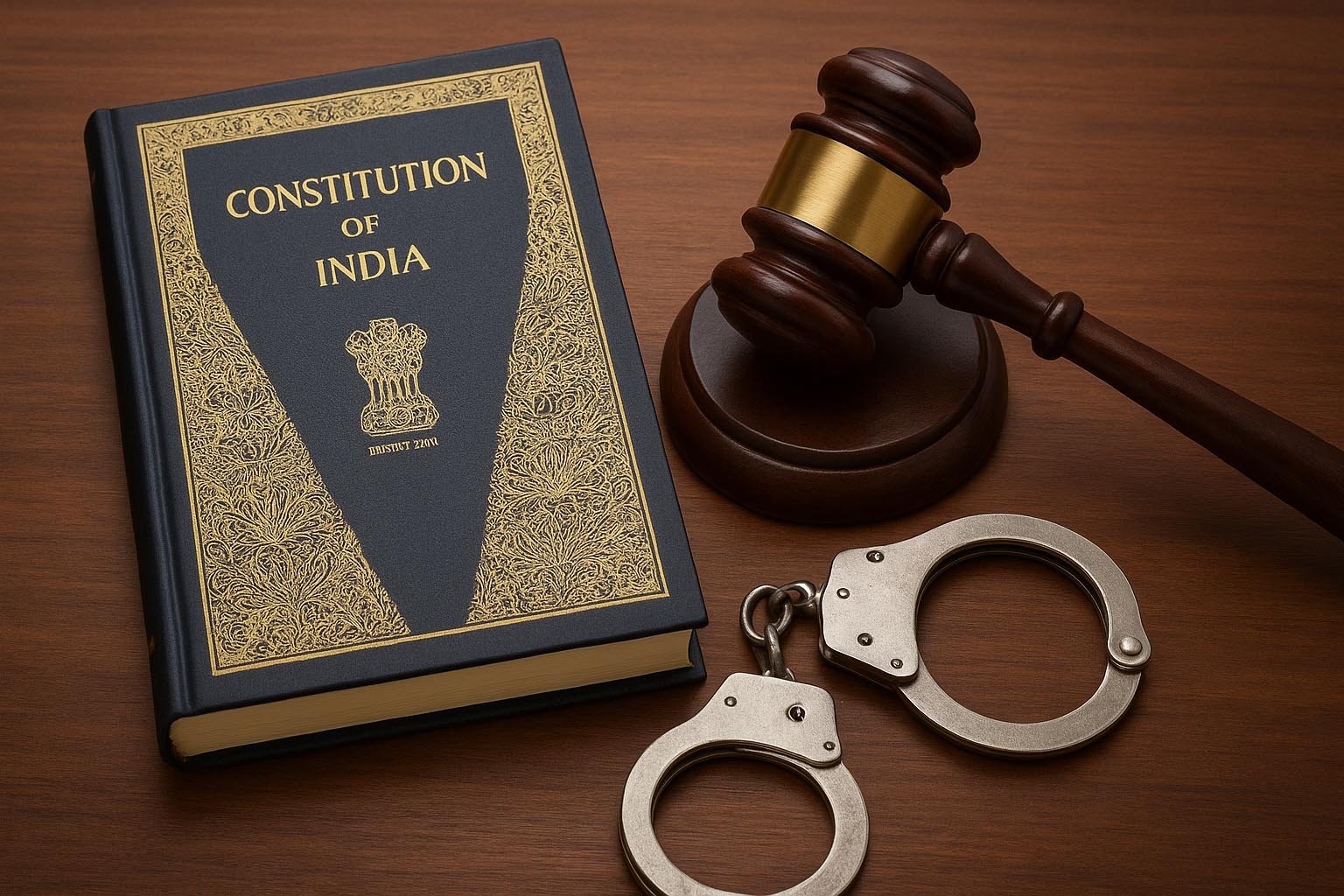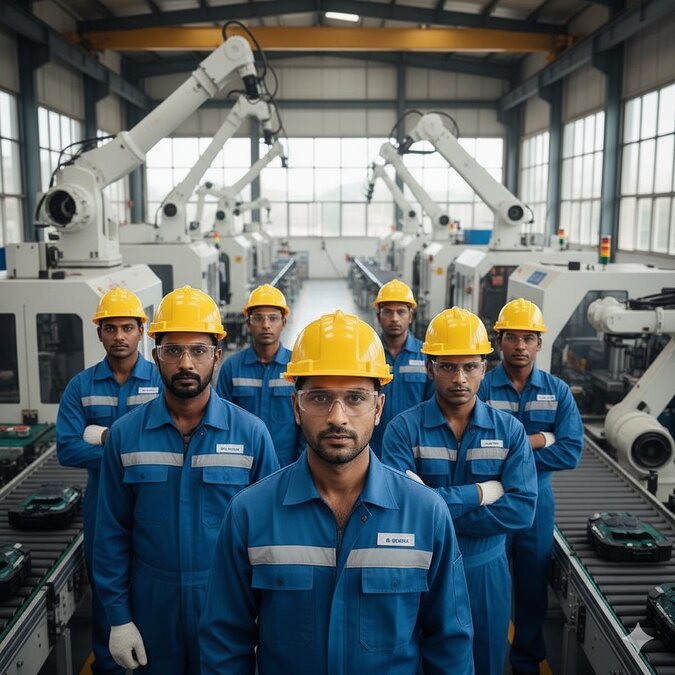New Delhi | August 21, 2025 – Constitution Amendment Bill 2025 has sparked intense debate in India’s Parliament after Union Home Minister Amit Shah introduced it in the Lok Sabha. The bill proposes that if the Prime Minister, Chief Ministers, or Ministers remain in judicial custody for 30 consecutive days in cases involving serious offences, they will automatically lose their positions. The proposal, now referred to a Joint Parliamentary Committee (JPC), has divided opinion across the political spectrum — raising questions about accountability, democracy, and potential misuse of power.
India’s Parliament witnessed a stormy session this week as the government introduced the Constitution (130th Amendment) Bill, 2025, which proposes that the Prime Minister, Chief Ministers, and Ministers will lose their positions if they remain in judicial custody for 30 consecutive days in cases involving serious criminal charges.
The bill, tabled by Union Home Minister Amit Shah, has now been referred to a Joint Parliamentary Committee (JPC) after fierce opposition protests. Supporters hail it as a landmark in accountability, while critics fear it could destabilise democracy and open the doors to political vendetta.
Understanding the Core of the Constitution Amendment Bill 2025
The Constitution Amendment Bill 2025 seeks to introduce a major change in India’s governance framework by altering Articles 75, 164, and 239AA of the Constitution. The bill proposes that if the Prime Minister, Chief Ministers, or Ministers remain in judicial custody for 30 consecutive days in connection with offences punishable by five years or more, they will automatically lose their office.
Under this amendment, the President, Governor, or Lieutenant Governor must issue the removal order by the 31st day of custody, failing which the office will stand vacant on the 32nd day. However, once released, the leader can be reappointed, allowing political parties to restore them if the charges were politically motivated or found unproven.
This means the Constitution Amendment Bill 2025 not only changes the accountability rules for India’s top leaders but also raises difficult questions about democracy, federalism, and the balance between law and politics.
Why the Government Says the Constitution Amendment Bill 2025 Is Necessary
According to the government, the Constitution Amendment Bill 2025 is essential to ensure that individuals facing serious criminal charges do not continue to hold high constitutional offices while being in custody. Union Home Minister Amit Shah, while introducing the bill, argued that no democracy can function effectively if its Prime Minister, Chief Ministers, or Ministers are seen ruling from behind bars.
The government highlights three main justifications for the Constitution Amendment Bill 2025:
- Integrity in governance – Citizens must have confidence that leaders in power are free from the taint of ongoing criminal custody.
- Preventing misuse of office – Ministers in custody should not be in a position to influence investigations or administrative decisions.
- Strengthening democracy – By separating governance from prolonged judicial custody, the amendment reinforces accountability in public life.
At the same time, the government defends the provision for reappointment after release, arguing that it protects leaders from permanent disqualification in cases where custody is politically motivated or later overturned by the courts.
Why is the Constitution Amendment Bill 2025 controversial?
The Constitution Amendment Bill 2025 is controversial because it allows for the automatic removal of the Prime Minister, Chief Ministers, and Ministers after 30 days of judicial custody, even before a conviction. Critics argue that this violates the principle of “innocent until proven guilty”, a cornerstone of India’s legal system. Opposition leaders fear that investigative agencies could misuse the provision to detain political rivals, effectively dislodging them from office without a court verdict. Many regional parties believe this could destabilise state governments and weaken federalism, making the bill a potential tool for political vendetta rather than accountability.

What changes will the Constitution Amendment Bill 2025 bring if passed?
If passed, the Constitution Amendment Bill 2025 will introduce a new constitutional mechanism under Articles 75, 164, and 239AA. Under this rule, if a Prime Minister, Chief Minister, or Minister remains in judicial custody for 30 consecutive days on charges involving offences punishable by five years or more, their office will automatically fall vacant. The President, Governor, or Lieutenant Governor will be obliged to formalise the removal by the 31st day. However, once released from custody, the leader may be reappointed to office if their party or coalition supports it. This change would mark a historic shift in Indian governance, making custody—rather than conviction—a ground for disqualification.
Why the Opposition Says the Constitution Amendment Bill 2025 Is Dangerous
Opposition parties have strongly opposed the Constitution Amendment Bill 2025, calling it a dangerous precedent that undermines the very foundations of Indian democracy. Their main argument is that the bill punishes leaders not after conviction but simply after 30 days of custody, which directly challenges the principle of “innocent until proven guilty.”
Critics warn that the Constitution Amendment Bill 2025 could become a political weapon in the hands of the ruling party. Since investigating agencies often come under fire for alleged misuse, prolonged custody of opposition leaders could be used to unseat Chief Ministers and Ministers without the need for a judicial verdict.
Regional parties are especially worried about the impact on federalism. The removal of elected Chief Ministers due to custody could destabilise entire state governments, creating political uncertainty. Leaders like M.K. Stalin have called it a “black bill,” while Asaduddin Owaisi warned that it could turn India into a “police state.”
For the opposition, the Constitution Amendment Bill 2025 represents not just a legal reform but a threat to the balance of power between states and the Centre, and between citizens and the government.
The JPC Referral: What Happens Next for the Constitution Amendment Bill 2025
After heated debate in Parliament, the Constitution Amendment Bill 2025 has been referred to a Joint Parliamentary Committee (JPC) for deeper scrutiny. The committee, consisting of 21 members from the Lok Sabha and 10 from the Rajya Sabha, has been tasked with examining the bill’s constitutional validity and its long-term implications for democracy.
The JPC will also consult legal experts, constitutional scholars, and stakeholders to determine whether the provisions of the Constitution Amendment Bill 2025 align with democratic principles. Its recommendations will play a decisive role in shaping whether the amendment moves forward in its current form or undergoes revisions.
As per the directive of the Speaker, the JPC must submit its report by the first week of the next parliamentary session, expected in mid-November 2025. Until then, the Constitution Amendment Bill 2025 remains in limbo, but the nationwide debate surrounding it is only intensifying.
Constitutional Questions Raised by the Constitution Amendment Bill 2025
The Constitution Amendment Bill 2025 has not only created political controversy but also raised deep constitutional questions that legal experts and jurists are now debating. Some of the most pressing issues include:
- Does it violate the basic structure doctrine?
India’s Supreme Court has consistently upheld that democracy, rule of law, and federalism form part of the Constitution’s basic structure. Critics argue that the Constitution Amendment Bill 2025 undermines this by allowing removal from office before conviction, which could erode democratic safeguards. - Can it be misused by investigative agencies?
With concerns already existing about the independence of central agencies, many fear the Constitution Amendment Bill 2025 could give ruling governments a legal tool to detain political opponents for extended periods and remove them from office without judicial verdicts. - How does it compare to global practices?
In many democracies, leaders are expected to resign if charged with serious offences, but very few countries enforce automatic removal on custody. The Constitution Amendment Bill 2025 could set a new and controversial precedent, positioning India uniquely in global constitutional practices.
These questions will likely form the crux of debates not just within Parliament but also in the Supreme Court if the bill is passed and subsequently challenged.
Broader Political Impact of the Constitution Amendment Bill 2025
The Constitution Amendment Bill 2025 carries far-reaching political consequences that extend well beyond the walls of Parliament. If enacted, it could fundamentally reshape the way power and accountability are understood in Indian politics.
- Strengthening the government’s accountability narrative – Supporters argue that the Constitution Amendment Bill 2025 reinforces the message that leaders facing serious criminal custody cannot continue to govern, thereby strengthening public trust.
- Destabilising state governments – Opposition leaders fear that prolonged custody of Chief Ministers in non-BJP states could be used to topple elected governments, making the political system more fragile.
- Triggering legal battles – Even if passed, the Constitution Amendment Bill 2025 is almost certain to be challenged in the Supreme Court, which will ultimately decide whether the amendment fits within the Constitution’s basic structure.
In short, the Constitution Amendment Bill 2025 could become both a symbol of political reform and a tool for political instability, depending on how it is implemented and interpreted in the months ahead.
Public Sentiment on the Constitution Amendment Bill 2025: Mixed but Uneasy
Among the public, reactions to the Constitution Amendment Bill 2025 have been deeply divided. Many citizens, frustrated with corruption in politics, welcome the idea that leaders in judicial custody for 30 days or more should not continue to govern. They see the amendment as a step toward restoring integrity and accountability in Indian democracy.
However, unease is growing among those who fear misuse of the law. Critics worry that the Constitution Amendment Bill 2025 could become a political weapon, allowing powerful governments to detain rivals under investigation and dislodge them from office without a fair trial. This sentiment has been widely echoed on social media, where hashtags like #CleanPolitics and #SaveDemocracy trend side by side, reflecting both support and suspicion.
The mixed reaction suggests that while the Constitution Amendment Bill 2025 appeals to citizens demanding cleaner politics, it also sparks fear about the balance of power and the future of democratic safeguards in India.
On social media, hashtags like #CleanPolitics and #SaveDemocracy have trended simultaneously, reflecting the divided mood.
FAQs on the Constitution Amendment Bill 2025
Q1. What is the Constitution (130th Amendment) Bill, 2025?
It is a bill that proposes automatic removal of the Prime Minister, Chief Ministers, and Ministers if they remain in custody for 30 consecutive days on serious criminal charges.
Q2. Who introduced the bill?
The bill was introduced in the Lok Sabha by Union Home Minister Amit Shah.
Q3. What happens if a minister is released from custody?
The person can be reappointed to their position by the President, Governor, or Lieutenant Governor if their party chooses.
Q4. Does this bill violate “innocent until proven guilty”?
Critics argue that it does, since removal happens before a conviction. The government says it is necessary to maintain integrity in governance.
Q5. What is the role of the JPC?
The Joint Parliamentary Committee will review the bill, consult experts, and submit a report in the next session of Parliament.
Q6. Has such a law existed before in India?
No. Disqualification under the Representation of People Act occurs after conviction, not mere custody. This bill is unprecedented.
A Turning Point for Indian Democracy?
The Constitution (130th Amendment) Bill, 2025 is not just a legal proposal—it is a political earthquake. If passed, it could change the way India views leadership, accountability, and federalism.
Supporters see it as a long-overdue step to cleanse politics of corruption and criminality. Critics warn it could be the beginning of authoritarianism, where elected leaders are removed through legal-technical means rather than the ballot box.
As the JPC prepares its report, India now faces a critical question: Can a democracy afford to remove its leaders on custody without conviction, or is it a necessary sacrifice to uphold clean governance?
The coming months will determine whether this bill becomes a historic safeguard or a constitutional controversy that reshapes Indian politics for decades.
AryaLekh (DoFollow)
- Luxury Beauty Lifestyle 2025: 12 Proven Upgrades for an Effortless, Powerful Glow
- Angelina Jolie Becomes Latest Hollywood Star to Leave America: A New Chapter Beyond Custody Battles
- युवाओं की चुनौती 2025 : नाराज़गी की Fierce Battle और उम्मीद की Powerful Wave
- डिजिटल रेप: गंभीर अपराध पर न्यायपालिका की सख्त चेतावनी और BNS 2023 की कड़ी सज़ा
- Rahul Gandhi’s Vote Adhikar Yatra: A Fight for Democracy or Political Survival?
- ₹2000 for a Coolie Ticket: Bengalureans Shocked at Exorbitant Rates for Rajinikanth’s Film
- Bold & Controversial Independence Day 2025 Announcements: GST Reforms, Jobs Scheme, and Security Push
- स्वतंत्रता दिवस 2025 की Exclusive और Powerful घोषणाएं: GST सुधार, युवाओं के लिए ₹1-लाख-करोड़ योजना और मिशन सुदर्शन चक्र
- War 2 Movie Review LIVE – Hrithik Roshan & Jr NTR’s Spy Thriller Roars Into Theatres
- Vote Chori or Clerical Chaos? A Deep Explainer on the INDIA Bloc Protests, Bihar’s SIR, and the “124 Not Out” Flashpoint








